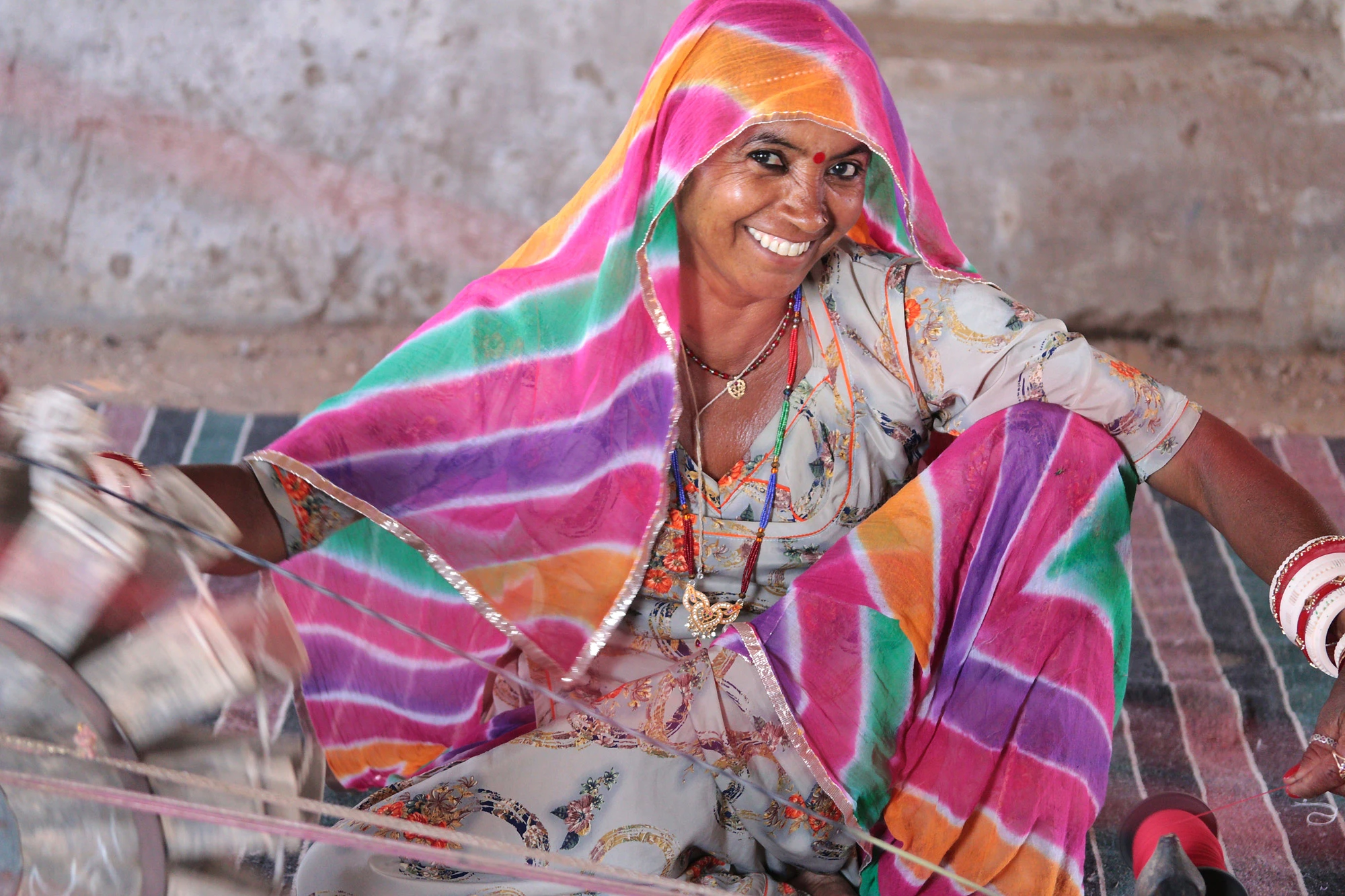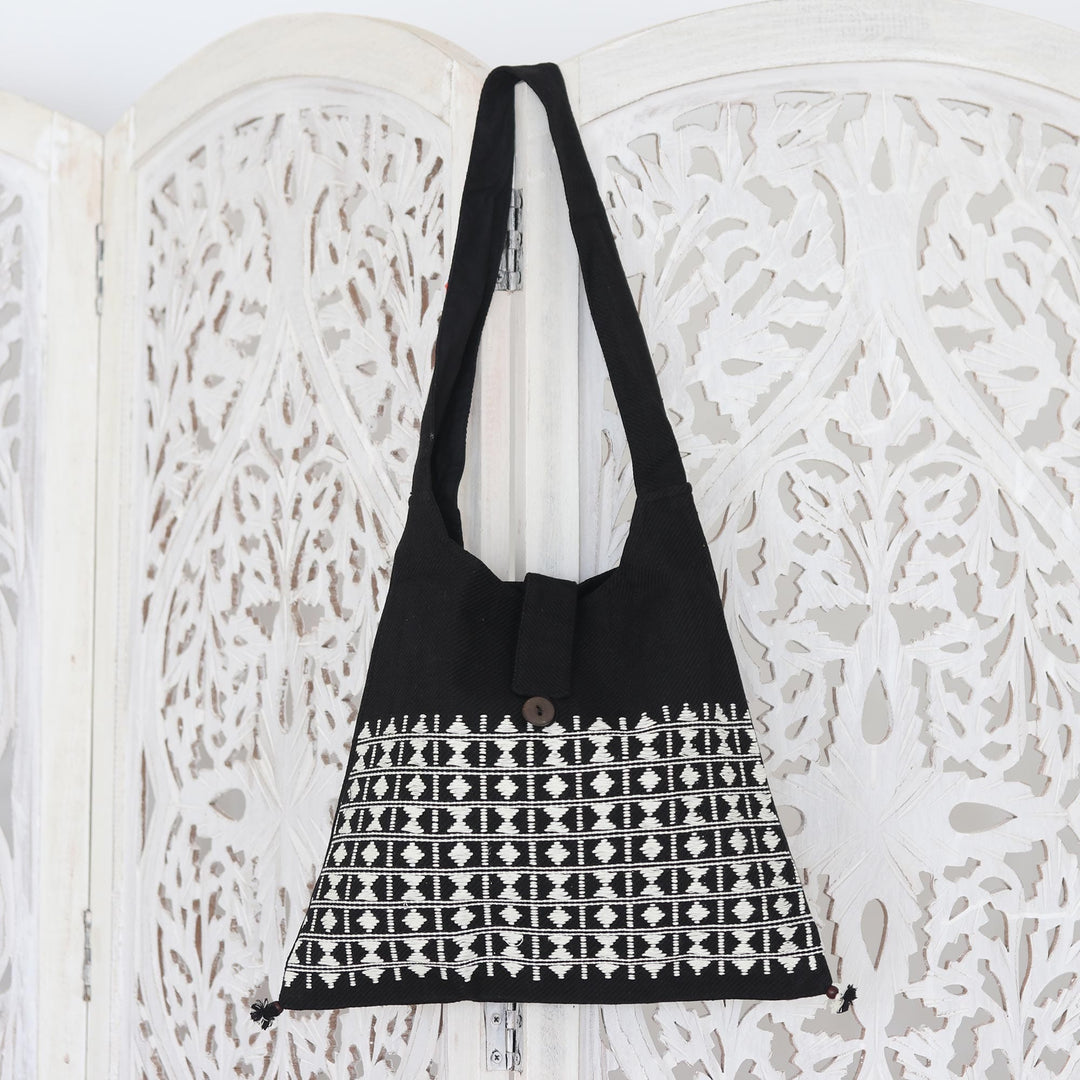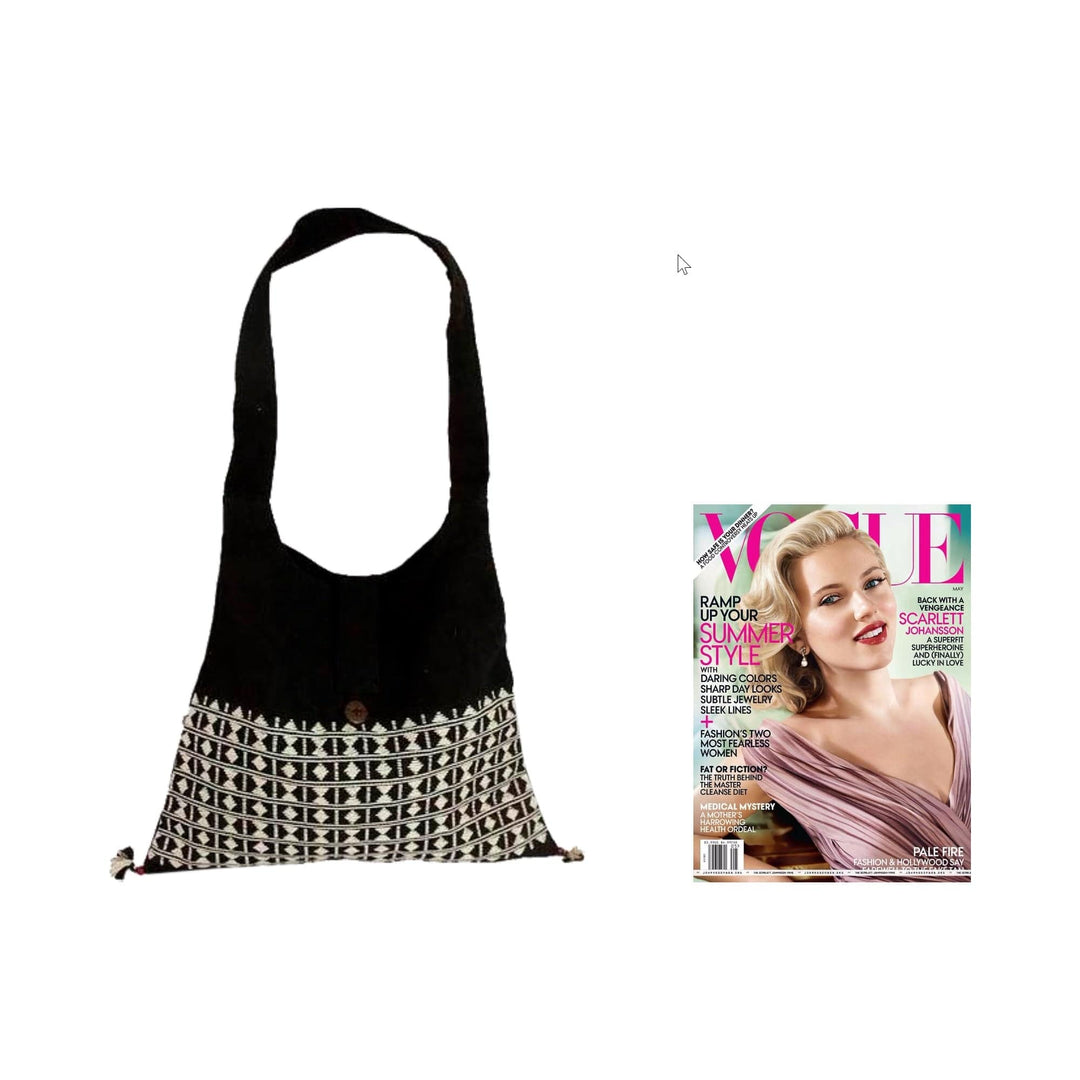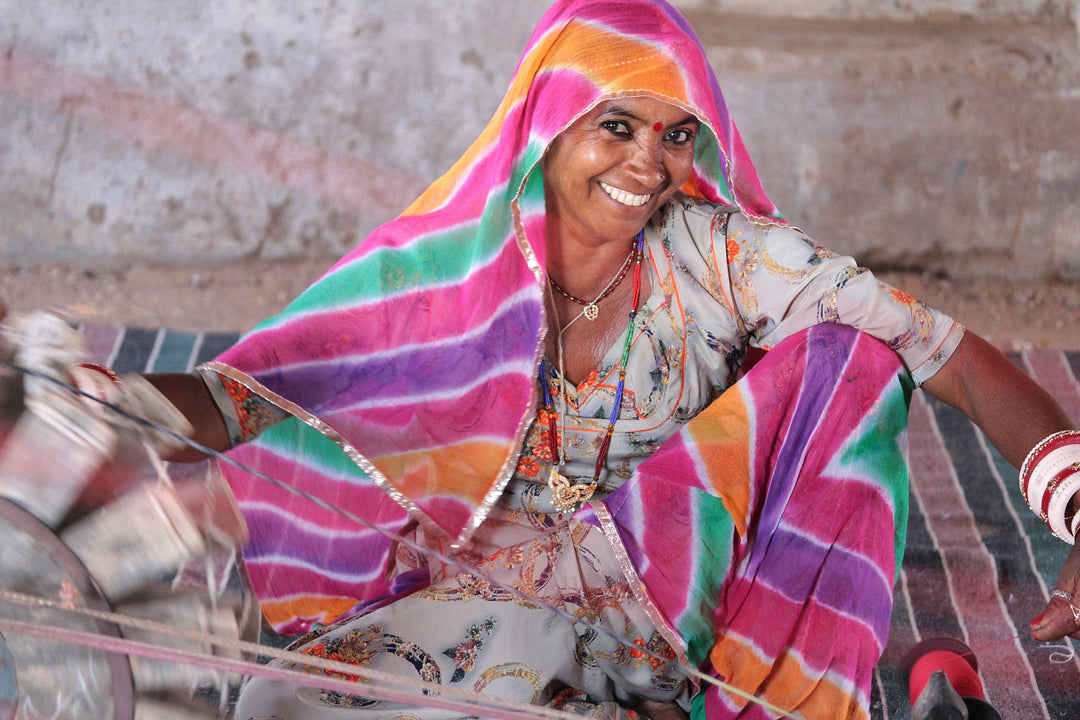

✓ Item added to cart
View Cart
Embroidered Cotton Shoulder Bag - Diamond Light
Learn more >
Sourced
Guarantee
White diamonds seem to shimmer on a background of black cotton. Created by UMBVS Desert Weavers of India, this dazzling handbag emulates fine hand embroidery with its complex and ornate weaves. The delightful sling tote is fully lined. Inside, a zipper pocket keeps things organized while tassels and sheesham wood beads adorn each corner.
- 100% cotton and sheesham wood
- 0.16 lbs
- Bag: 11 inches L x 13.8 inches W
- Strap(s): 22.8 inches L x 1.6 inches W
THE STORY BEHIND THE PRODUCT

Artisan Organization: Desert Weavers of India
Country: India
We dream of a just and egalitarian social order in which there is space for everyone, especially the weakest and the most deflected, so they can stand on their own feet and live a life of dignity, says Mularam, a member of Desert Weavers of India.
Urmul Marusthali Bunkar Vikas Samiti (UMBVS) is an NGO of traditional weavers formed in 1987. The group became independent in 1991. What started as a self-help group has now become a successful weavers' community in the Jodhpur district of Rajasthan.
The name Urmul Marusthali Bunkar Vikas Samiti literally means "Development Committee of Desert Weavers." It began with a small group of 30 weavers, each equipped with traditional weaving techniques and personal skills, which have been handed-down from generation to generation. Now the organization has spread to 90 villages, supporting more than 170 families. "I have been weaving now for 15 years, as I was born into a family of weavers," 35-year-old Mularam says as he offers testimony of his experience. "My forefathers have all been weavers, and they taught me the art while I was growing up. Being a member of Desert Weavers of India UMBVS, gave me opportunity to learn new designs, use different kinds of yarn and, most importantly, the crucial aspect of quality and perfection.
"Before joining, I used to work for middlemen, which was rather unsettling due to untimely payment, poor raw materials etc. Now I get the raw materials and design suggestions from UMBVS. Apart from the financial benefits, I have earned a lot of respect and admiration from my community for my fine work and my association with the organization."
Like most women in weaving communities, Pappu Devi was only allowed to assist her husband as he wove. She got the yarn ready and generally helped around. UMBVS successfully changed the centuries' old tradition that forbade women from working on the loom, thus offering them an opportunity to learn how to weave. Pappu Devi took this opportunity, and now she is an accomplished weaver! Her husband does not keep too well, and appreciates her contribution. "Now when I cannot weave due to ill health, we no longer have to ask for help from neighbors. Pappu Devi weaves just as well as I do, and we get by," says her husband.
From traditional style to adding a touch of urbanity, the weavers of UMBVS have come a long way. They add and combine new materials, styles and motifs to their traditional style.
The main weaving technique is called pattu, which is derived from the term patti, meaning "narrow strips." Working on a pit loom, the patterns are woven in two pieces and joined together. The uniqueness of this weaving is the supplemental weft ornamentation, called kashida. This means that extra threads are placed by hand into the horizontal threads to obtain an embroidered effect. The wool's natural colors as well as organic dyes are used to create decor accessories, garments, and wide range of bags and pouches.
But the real strength lies in the Desert Weavers group's ability to reach out to the community, to provide education and health services, relief, social security, and to give a voice to the weakest. Besides the weaving units, the organization runs more than a dozen schools in surrounding villages. Their child-centered activities range from immunization and growth monitoring for infants, to special programs for adolescents.
Desert Weavers of India UMBVS has been at the forefront of relief and rehabilitation efforts in the community. Whether it is a deadly epidemic of malaria, a fire, flash floods, or the recurrent phenomenon of drought, UMBVS members have worked day and night to provide aid to the helpless and the needy in their area."























